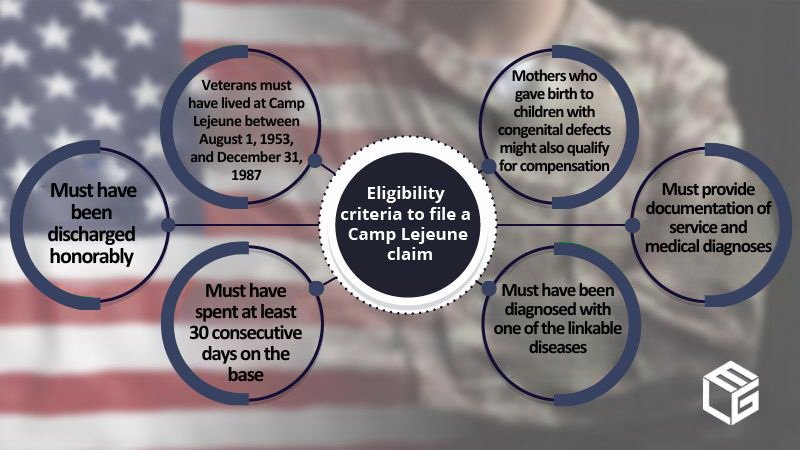Attention: We are no longer taking Camp Lejeune cases!
Exposure to vinyl chloride is a risk factor for developing sarcomas of the liver
The lifetime risk of developing soft tissue sarcoma is 1 in 250, which means it is a rare disease. Nevertheless, veterans who spent time at Camp Lejeune have a higher risk of coming to struggle with it, as they were exposed to harmful substances from drinking water.
There are roughly 50 subtypes of soft tissue sarcoma, and they are very rare. It is worthy of note that soft tissue sarcoma mostly occurs in the arms, legs, chest, and abdomen. The most common sign of soft tissue sarcoma is a lump or swelling in soft tissue.
These are some of the most frequently diagnosed subtypes of soft tissue sarcoma:
- desmoid tumors: they grow from the cells that make up connective tissue, which supports and connects the bones, ligaments, and muscles
- alveolar soft part sarcoma: it occurs in muscle, fat, or nerves and usually develops in the leg, but it can also start in other parts of the body
- infantile myofibromatosis: this is a rare tumor that grows in the skin, muscles, bones, and, sometimes, in the organs of the chest or abdomen
- clear cell sarcoma: it occurs mostly in the arms, legs, feet, and hands, but it can also grow in the torso, including the stomach and intestines
Vinyl chloride is one of the dangerous chemicals associated with a high risk of soft tissue sarcoma that lurked in the drinking water at Camp Lejeune during the last century. Exposure to dioxins, another group of toxic chemicals, might have also occurred at the military base during the Vietnam War when the herbicide and defoliant known as Agent Orange would be stored there. According to a study from the medical journal Systematic Reviews, workers with exposure to chemical agents, benzene, or other solvents had a higher risk of developing soft tissue sarcoma.
Exposure to dioxin can also cause soft tissue sarcoma
A study from the European Journal of Cancer Prevention found that individuals exposed to vinyl chloride have a higher risk of developing liver angiosarcoma, a subtype of soft tissue sarcoma that occurs in the lining of blood and lymph vessels.
Researchers observed 22,000 workers from 56 plants in North America and Europe who would regularly come in direct contact with vinyl chloride on the job. They were followed for 50 years. Out of the participants, 71 developed liver angiosarcoma.
Dioxin exposure has also been associated with a high risk of soft tissue sarcoma. A study published in the medical journal Environmental Health found a 3.3 times greater risk of developing soft tissue sarcoma in both men and women exposed to dioxins via inhalation over a long time from waste incinerators and industrial sources. Interestingly, a significant excess of risk was observed in women. The study supports the link between modeled dioxin exposure and sarcoma risk. Veterans stationed at Camp Lejeune between 1955 and 1975 might have also been exposed to dioxins since Agent Orange contained a tremendous concentration of 2,3,7,8-tetrachlorodibenzo-p-dioxin.


